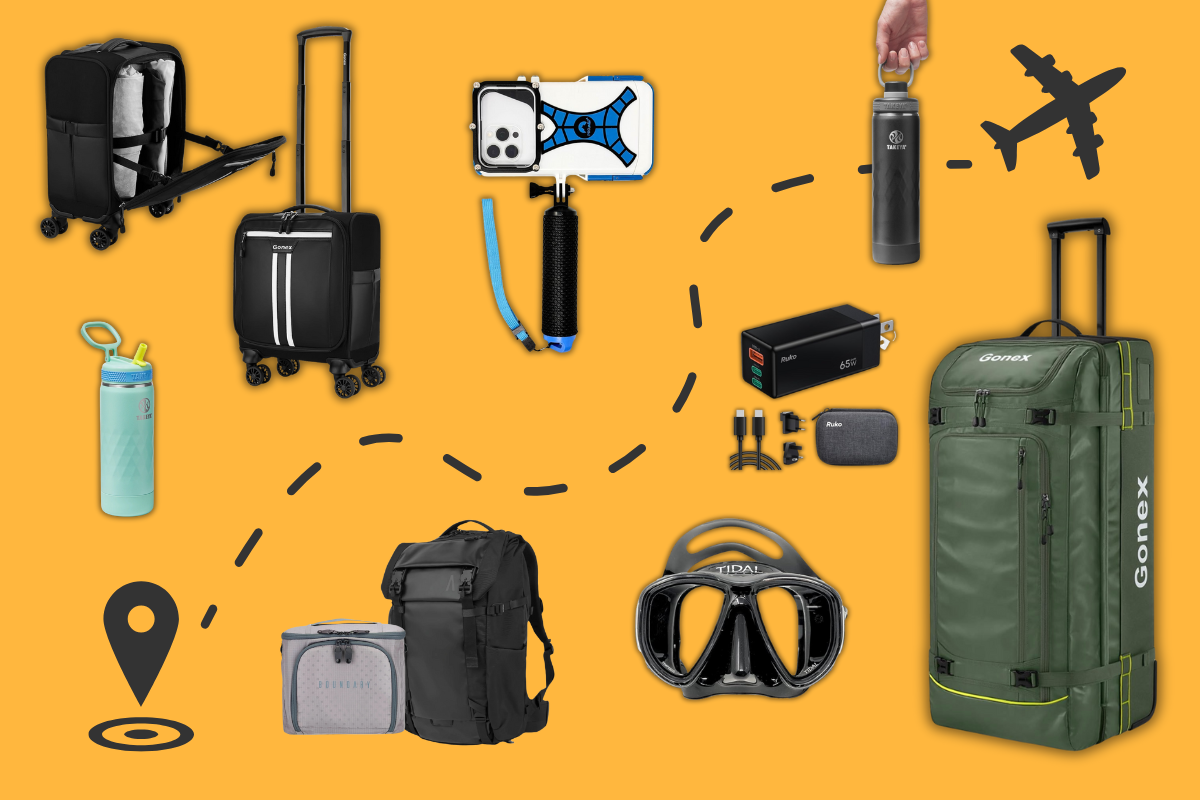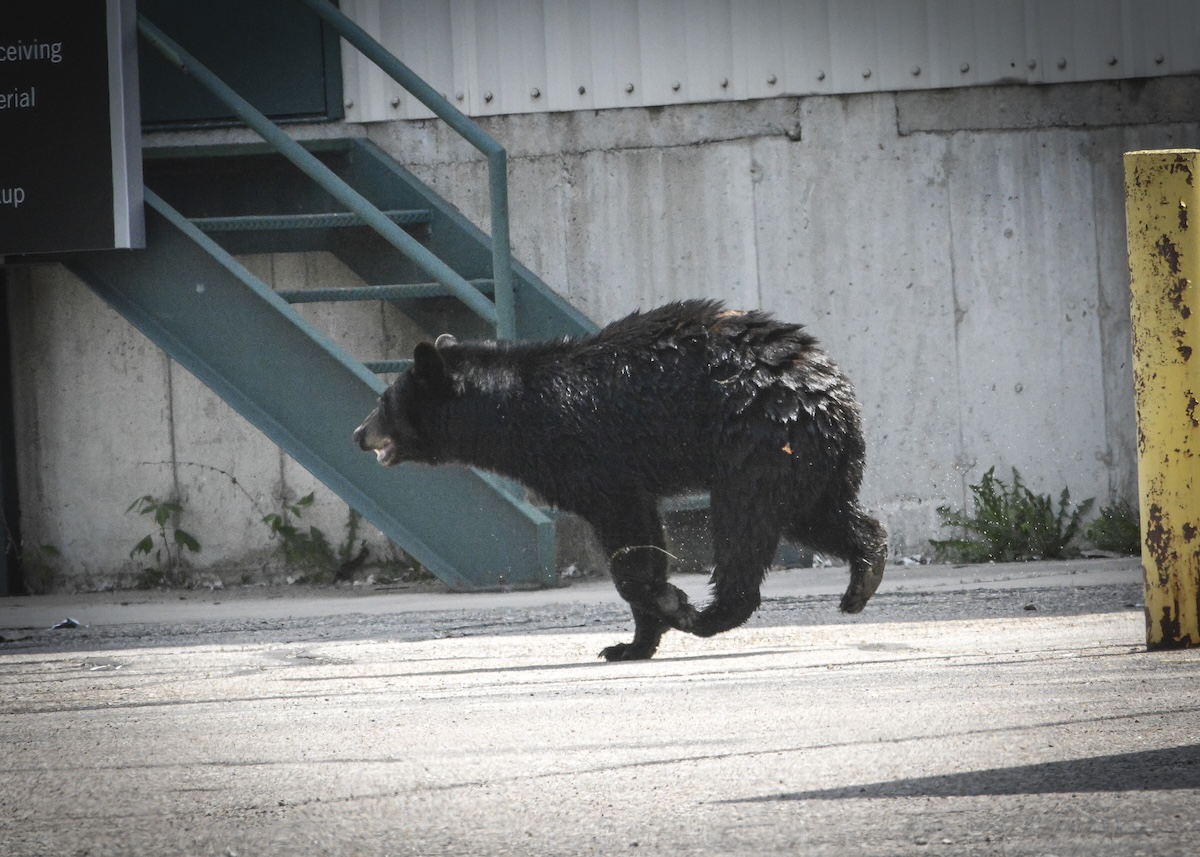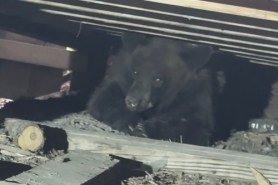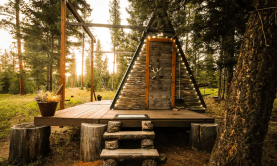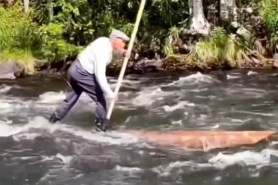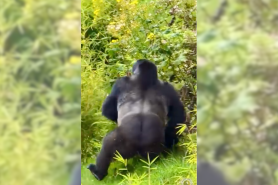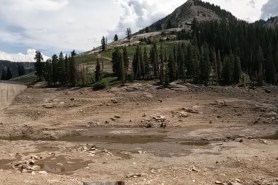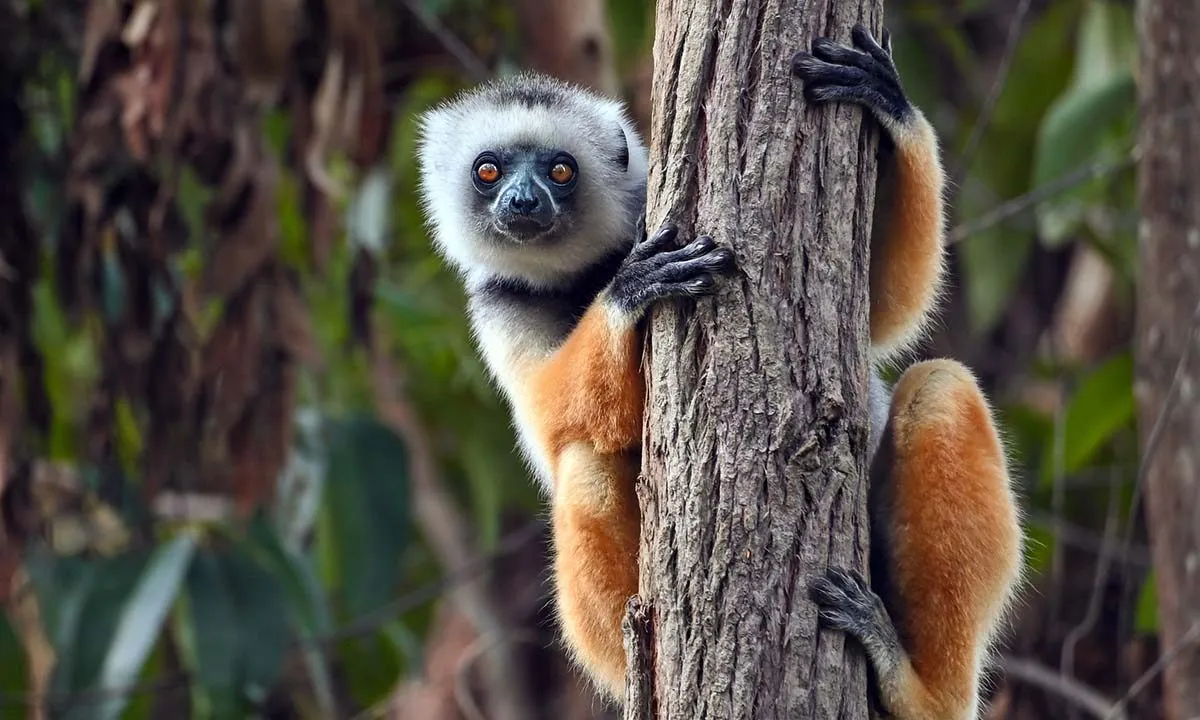

Madagascar is a special place, located just off the southeastern coast of Africa. It is the fourth largest island in the world, and although it is one of the poorest countries in the world, it is rich in biodiversity. Madagascar has 200,000 known species, of which about 150,000 are endemic, or native only to Madagascar—and 70 of those species are lemurs. It is also home to the beautiful baobab tree, characterized by very long and wide trunks with spreading, flat top branches.
Videos by Outdoors
Experiencing Madagascar’s wildlife is a rare and unique experience. If you’re not yet able to venture halfway across the world, read on for a taste of some of the world’s most unique animals you’ve never seen from Madagascar’s Andasibe National Park.
5. Madagascar Tree Boas
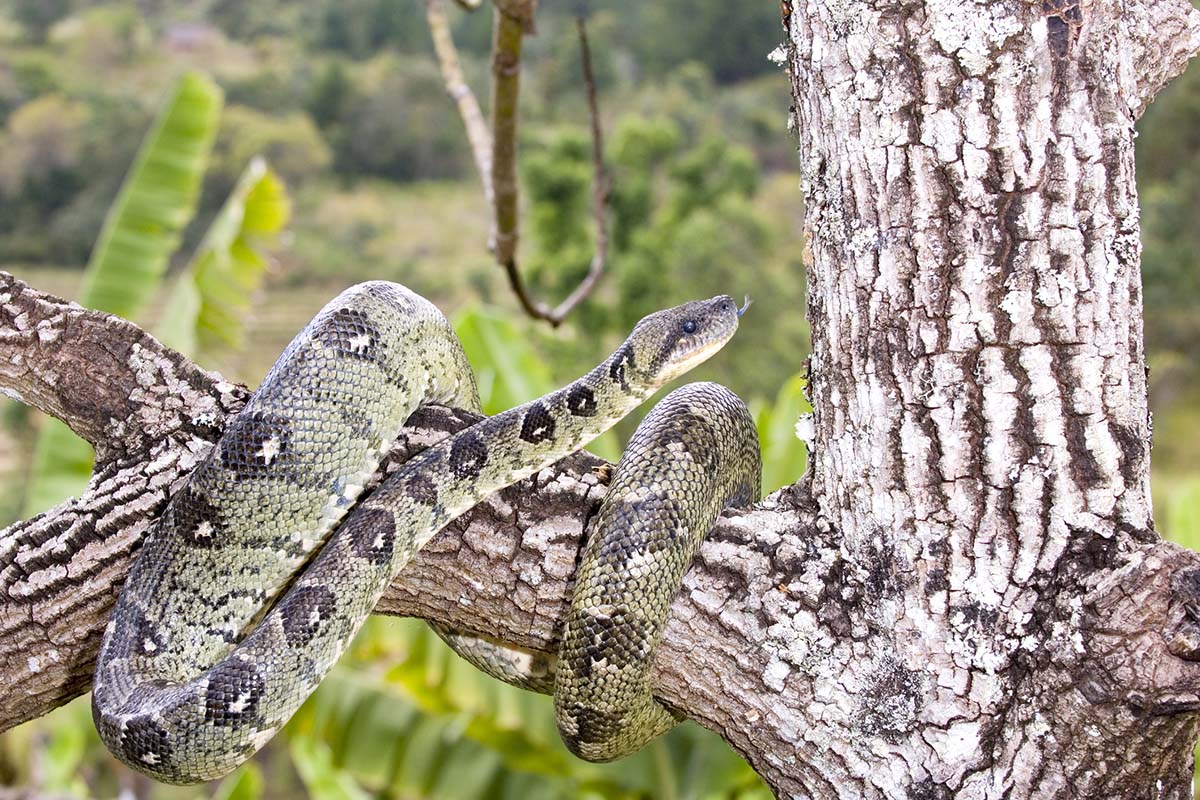
This non-venomous snake species is endemic to Madagascar and can be found in the park’s forests, particularly its trees. This medium-sized boa grows to be about 4-6 feet long and has striking red-brown coloration. It has smooth, glossy scales that aren’t keeled or ridged and extremely sharp teeth. The Madagascar tree boa is known for ambushing prey from the treetops.
4. Diademed Sifakas
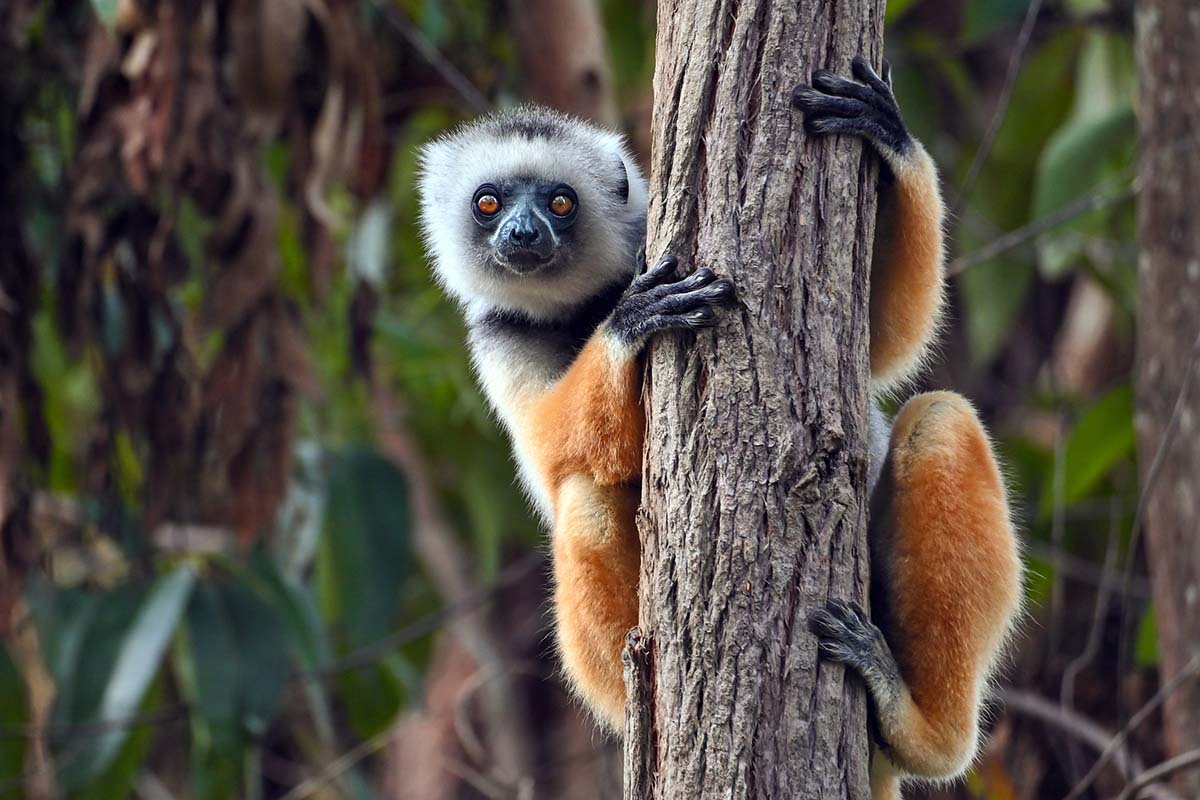
The diademed sifaka is the largest sifaka species (sifakas are a type of lemur). This incredibly cute and rare lemur species is endemic to certain rainforests in eastern Madagascar. Within groups of diademed sifakas, females are dominant. Active in the day and found hanging out in trees, they love to eat ripe fruits, seeds, flowers, and leaves. Its bright, distinctive coloring makes this lemur an amazing site to behold.
Unfortunately, the diademed sifaka is listed as Critically Endangered on the IUCN Red List. Threats include slash-and-burn agriculture, illegal rum production, and the pet trade, which keeps them from being able to breed in the wild.
3. Panther Chameleons
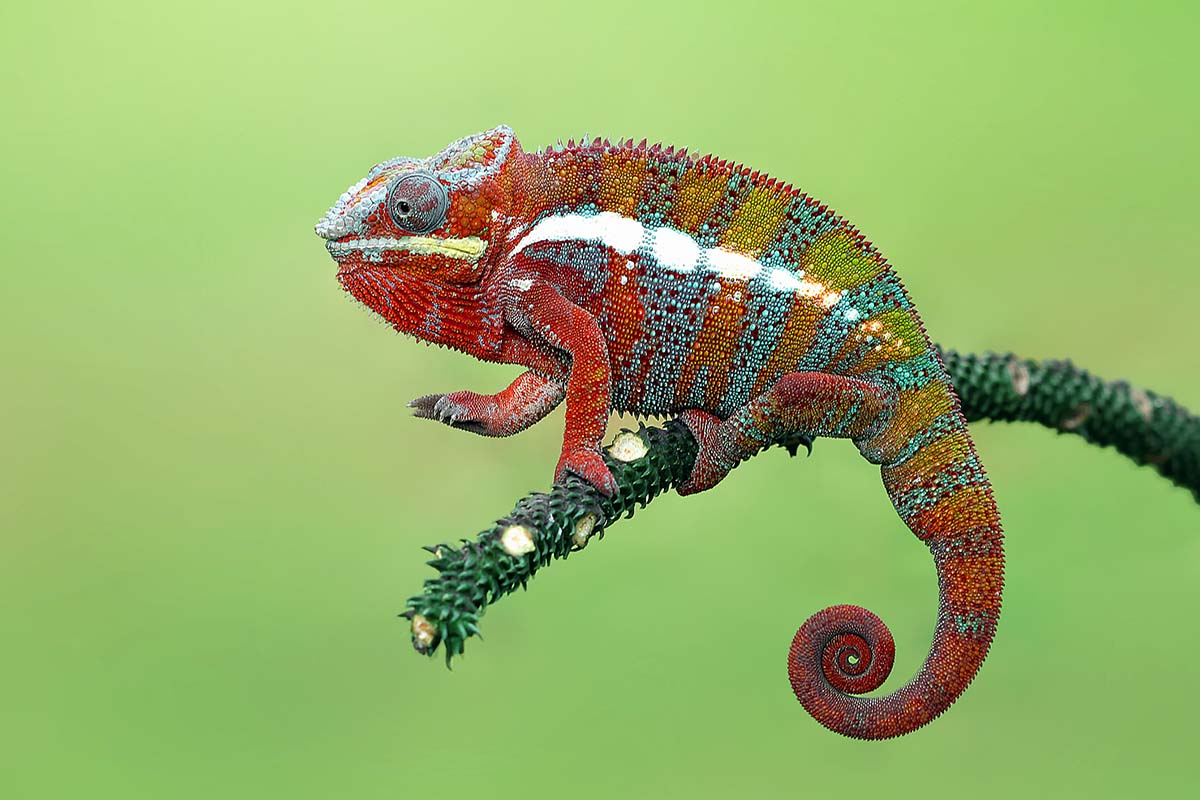
Half of the world’s 150 species of chameleons are found in Madagascar. Chameleons live all over Madagascar, but you can view one of the most famous, the panther chameleon, in Andasibe National Park. Known for its psychedelic coloration and long tongue, if you’re lucky enough, you’ll see this chameleon catch a fly right out of the sky and whip it into its mouth. It’s the males that are decked out with dazzling colors. Malagasy people use the phrase “Ratsy karaha Kandrondro,” which means “ugly as a chameleon,” but considering how cute these colorful creatures are, it’s hardly an insult.
2. Tenrecs
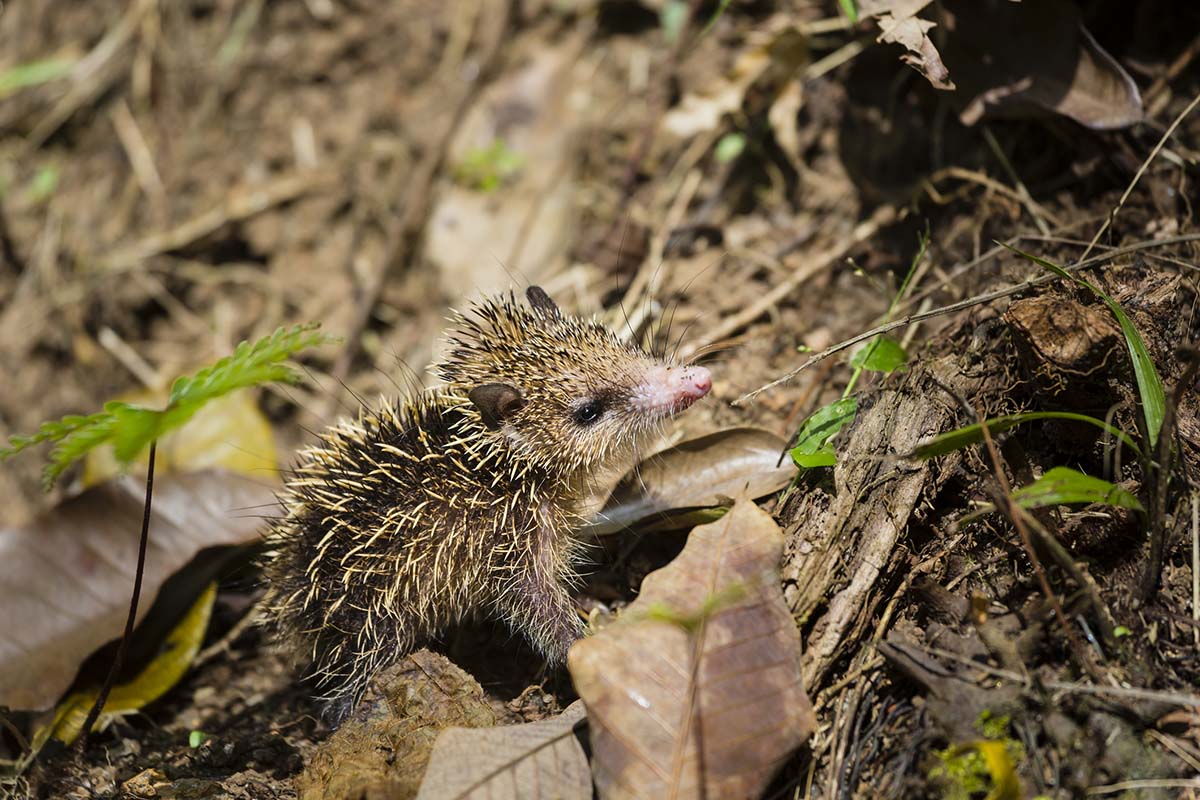
Tenrecs are small mammals found mainly in Madagascar. These unusual animals display incredible diversity in size, appearance, and behavior, with some resembling hedgehogs while others are more like shrews or even otters. They are known for their spiky quills, which can serve as a defense mechanism, as well as their little pointy snouts. The tiny creatures weigh only around 0.2-0.3 ounces and grow about 2.8 inches long. The streaked tenrec has an incredible black and yellowish coloring, almost like a spiky skunk.
1. Malagasy Civets
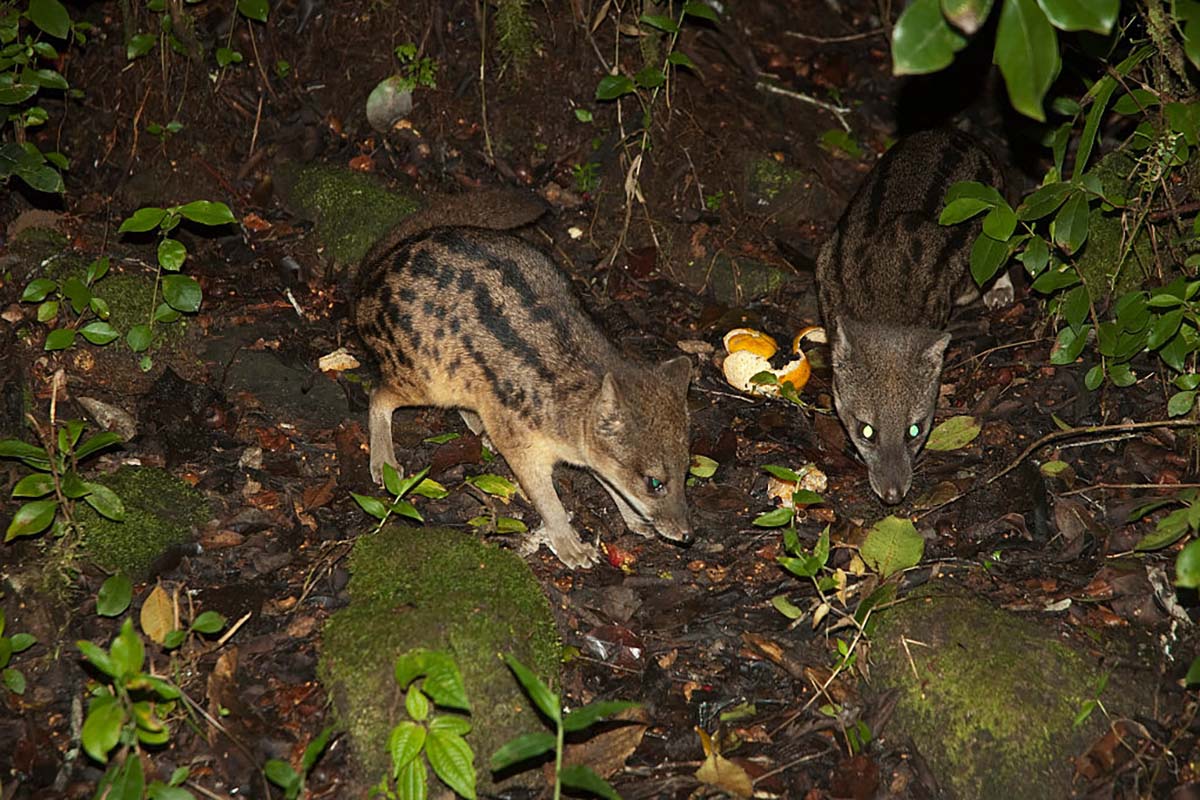
Known as fossa fossana or spotted fanaloka, this adorable cat-fox-like creature is characterized by the spot-like pattern on its fur, its slender body, and its long, bushy tail. Malagasy civets can live as long as 21 years and are about 18 inches long. They primarily eat small mammals, birds, insects, and fruit. These omnivorous predators play a crucial role in maintaining the ecological balance within Madagascar’s unique ecosystems. Unfortunately, the Malagasy civet faces habitat loss and threats from hunting, making it a vulnerable species in terms of conservation.
